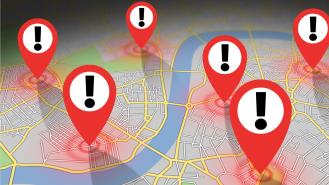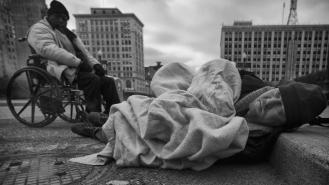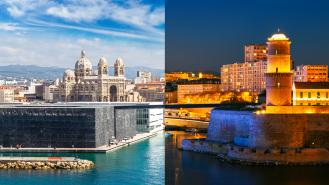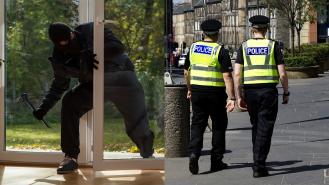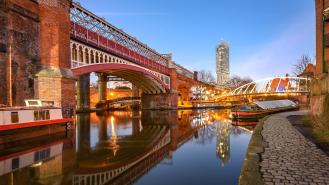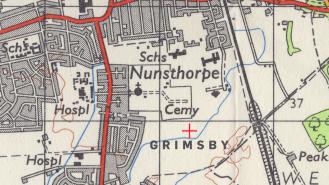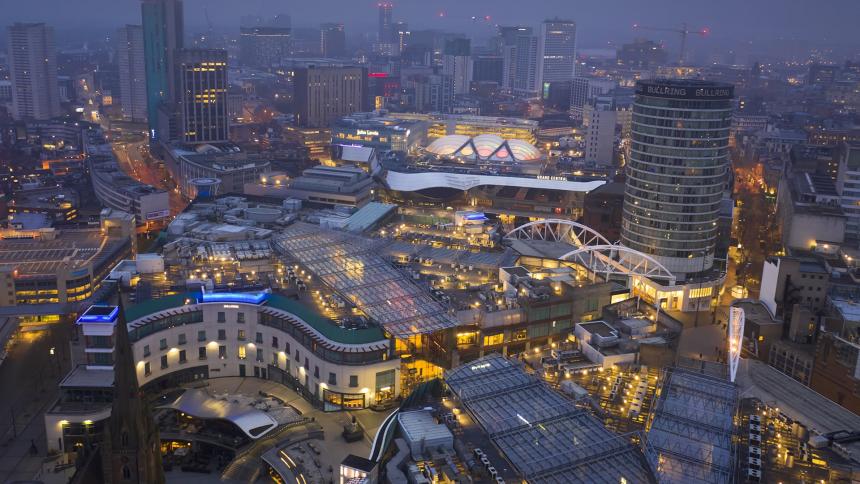
The most dangerous cities to live in the UK
The Safest Cities in Britain
5. Cambridge
A cyclist’s dream, this affluent city is absolutely jam-packed full of students, bicycles and students on bicycles. There’s very little to fear on the unmean streets of Cambridge. Except perhaps being run over by a student on a bicycle, of course.
4. Southampton
The south coast city of Southampton has some very relaxed locals, very few of whom fear violence or crime where they live. In fact, the only fear most residents there have is being knocked out of the FA Cup by Portsmouth.
3. Brighton & Hove
Brighton can get pretty lively, especially at night. But of those living there that were polled, very few expressed concerns over safety or violent crime. It has been quite a few years since the mods and rockers last clashed on Brighton Beach, we suppose.
2. Bristol
Situated on the River Avon, Bristol is a city in the South West of England with a population of around half a million people. It is known for its vibrant culture, lively music scene, and beautiful harbor. According to the latest crime statistics, the city has some of the lowest rates of violent crime and burglary in the country, and the overall crime rate has been steadily declining. This has helped to make Bristol a safe and welcoming place to live, work, and visit
1. Edinburgh
Despite the (fictional) events of Irvine Welsh’s Trainspotting taking place in the Scottish capital, a whopping 82% of those that live in the city claim to feel safe there and would recommend the place as safe to others. A cultural hub and tourist hotspot, the student population is high and the crime rate is low.
Now let’s get into the more interesting UK cities. Those that are deemed the most dangerous places to live by the people that know them best… Those that actually live there.
The Most Dangerous Cities in Britain
5. Sheffield
Think of Sheffield and what comes to mind? Steel, Snooker and Sean Bean, perhaps. Maybe Pulp or The Full Monty, at a push. What you might not think of is crime. And you’d be right not to. Only this South Yorkshire city isn’t exactly rife with serious violent crime. What it does have, however, is antisocial crime. And lots of it.
More than 575,000 people call Sheffield home. With a large bustling city centre and two huge universities, nightlife is plentiful there. As is the kind of antisocial behaviour you might attach to that. In fact, a whopping 44% of all crimes there between April 2016 and March 2017 were antisocial in nature.
4. London
London is synonymous with - in the past few years at least - serious knife crime. There’s an epidemic in the capital. Of course, a city of some nine million people is always going to have crime. And, for its size, London doesn’t ranked (globally) as a ‘problem city’. But in the context of this country, it’s - quite understandably - considered a pretty dangerous place. There were a recorded 168 offences involving a knife for every 100,000 Londoners in 2018. More than 5,000 people attended hospitals in the city due to stabbings. 268 murders using 'a sharp instrument' were recorded in that same year. These kinds of stats are at record highs. Other violent crimes exist in London too, of course. But it’s the gang-related stabbings that really stand out to the casual observer. They simply must affect how safe those people living in London feel.
3. Manchester
Greater Manchester Police receives around 200,000 reports of crime each and every year. As with most cities, the majority of these calls are to report more minor offences such as antisocial behaviour and criminal damage. But while the home of The Stone Roses and cotton might not be The Wild West, serious crime exists there. The city sees, on average, a murder a week. And some 125,000 violent crimes a year. 'Violence against the person' accounts for a total of 17% of all crimes committed there. Manchester has a notably higher-than-average crime rate when compared to most other UK cities. The areas to really avoid are Moss Side and Rusholme, especially if you're the kind of person who generally likes to avoid being the victim of gun crime.
2. Leicester
Perhaps the most surprising place to appear on the list is the East Midlands city of Leicester. With a population of around 350,000, the county town of Leicestershire is the 11th most populous city in England and sits in pretty much the dead centre of the country. Other than its football team’s shock Premier League win a few years back, there’s not much remarkable or outstanding about the place. Which is why it’s so odd to see it ranked second here.
Look at the nationwide statistics and it soon becomes clear that Leicester is a pretty average city. Crime rates are as you might expect. So just what it is about living there that makes residents feel so unsafe? Perhaps crimes go unreported there. Or there’s a culture of fear in the city for some reason. Intriguing.
1. Birmingham
A not inconsiderable 44% of Brummies would rule out the notion of recommending their home city as a safe place to live to someone else. Residents no longer have to fear the Peaky Blinders, but there is still significant organised crime in the city that’s the work of gangs. Birmingham natives and foreign nationals from countries such as Albania regularly fight for turf in drug-dealing, gun-running and modern slavery operations.
West Midlands Police claim that there are over 40 Organised Crime Gangs (or 'OCGs' to use Line of Duty - and police - parlance) operating in Birmingham at any one time. Gangs that comprise approximately 400 members. And that's not counting those smaller mobs that are classified as 'Urban Street Gangs'.
Does any of this prove that any of these cities are inherently better than any other? No, of course not. Those five ‘most dangerous’ cities there have plenty going for them: London is one of the most visited places on the planet, Birmingham is England’s second city and Manchester is one of the world’s greatest sporting and musical hubs. These cities are still all great in their own ways. They’re just, well, a little ‘colourful’, shall we say?
